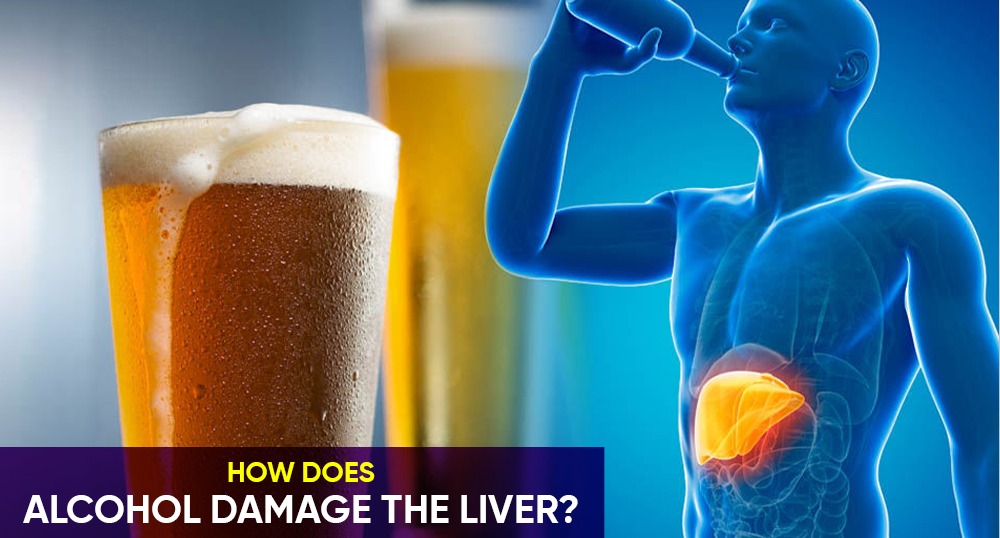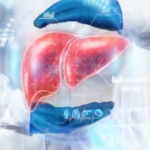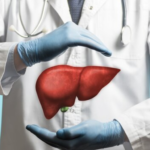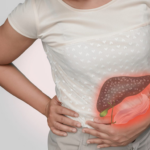
Alcohol is a toxic substance that can cause damage to many organs in the body, including the liver. The liver is responsible for filtering toxins and metabolizing drugs, including alcohol, so it bears the brunt of the damage caused by excessive alcohol consumption.
When alcohol is consumed, it is metabolized in the liver by an enzyme called alcohol dehydrogenase. This enzyme breaks down the alcohol into acetaldehyde, which is then further broken down into acetate. The process of metabolizing alcohol produces by-products that are toxic to liver cells and can lead to inflammation and damage.
One of the most common forms of liver damage caused by alcohol is known as alcoholic fatty liver disease (AFLD). This occurs when the liver is unable to metabolize the excess fat that is produced as a result of alcohol consumption. The excess fat accumulates in the liver, leading to inflammation and damage. In the early stage this condition is reversible but if left unchecked it can lead to more serious conditions like fibrosis or cirrhosis.
Another form of liver damage caused by alcohol is alcoholic hepatitis. This is a severe form of inflammation of the liver that can be caused by heavy alcohol consumption. Symptoms of alcoholic hepatitis include jaundice, abdominal pain, and nausea. In severe cases, it can lead to liver failure and death.
Cirrhosis is the last stage of liver damage caused by alcohol. It is a chronic condition that is characterized by the formation of scar tissue in the liver, which impairs the liver’s ability to function. In this stage the damage is irreversible and liver function becomes impaired.
Alcohol also increases the risk of liver cancer. Chronic heavy drinking leads to the formation of cirrhotic nodules, which increases the risk of liver cancer
It is worth noting that not all heavy drinkers develop liver disease and that the way alcohol is consumed, as well as genetic and individual metabolic factors, play a role in the development of liver damage. However, the risk of liver damage increases with the amount and duration of alcohol consumption.
Prevention is the best way to avoid liver damage caused by alcohol. Limiting alcohol consumption to moderate levels can reduce the risk of liver damage. If you’re struggling with alcohol addiction or dependence, it’s important to seek help from a medical professional. Treatment options include therapy, medication, and support groups.
In summary, the liver is a vital organ that performs many essential bodily functions, including metabolizing drugs and toxins. Excessive alcohol consumption can lead to a variety of liver diseases, including fatty liver disease, alcoholic hepatitis, cirrhosis, and even liver cancer. By understanding how alcohol can damage the liver and taking steps to reduce alcohol consumption, it’s possible to protect the health of the liver and prevent serious complications.




